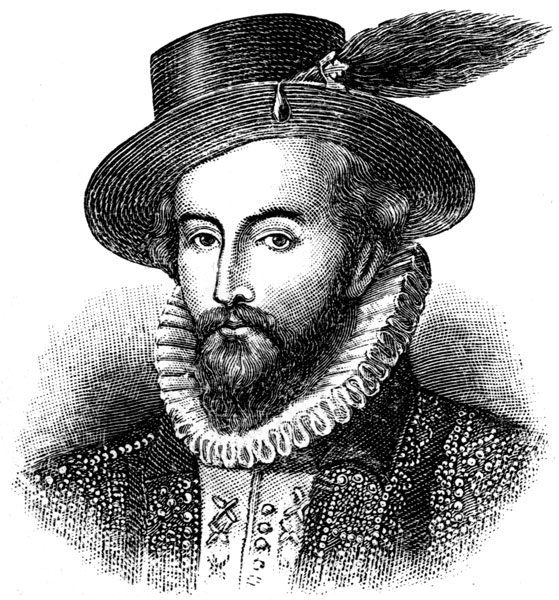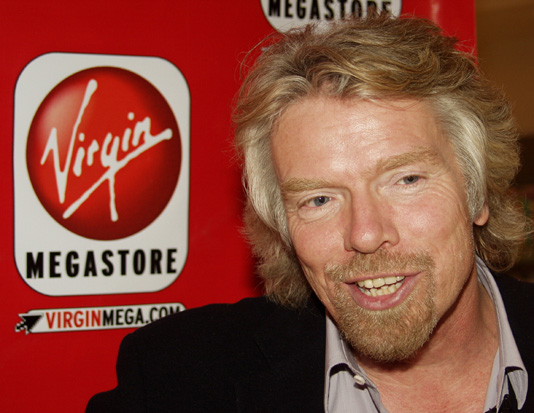
To mark the Diamond Jubilee, James Naughtie will be profiling the 60 public figures who have made the greatest impact in these islands during The Queen's reign - men and women who have defined the era and whose deeds will stand the test of time
So begins the radio 4 website's attempt to define the age within which we live through the lives not of the queen, but of her subjects.
Who then were the 'old Elizabethans'? Well the obvious name would be William Shakespeare. Though if you asked people then, he's unlikely to have been on the list. He stands for the theater and English literature and literacy, which was starting to combine in the theaters and in the romantic art of poetry.
Sir Walter Raleigh sums up the privateers and also the defeat of the Spanish Armada.
There is something symbolic in a process such as this. Figures are nominated not only on behalf of their own achievements, but also for what they symbolise about the society they have lived within.
 On Start the Week of Monday, 13th February, a couple of interesting names came up. Richard Branson, to stand for business, and the curious world of marketing within which we live.
On Start the Week of Monday, 13th February, a couple of interesting names came up. Richard Branson, to stand for business, and the curious world of marketing within which we live. Nick Leeson, the man who broke Bearings Bank, was also suggested, as he symbolised the financial crises that have rocked out world.
I'm going to nominate another writer who's not only had a profound effect on my life, but also on the world within which we live. In fact, I'd go so far as to say he's had a greater effect on the modern world than any other writer, except perhaps Dickens. Yes, it's JRR Tolkien.
Why Tolkien? It might seem an odd claim for a writer whose work was largely linguistic and personal, and based on a neglected area of interest: mainly medieval sources (Beowulf, Gawain, Sir Orfeo, Sir Launfal) or fairy tales, which have been thought of as suitable only for children.
Tolkien's work has reclaimed fantasy - or faerie - from the Tinkabelle and Flower Faries. He has brought magic back into the mainstream. Look at the modern world: it's dominated by stories that revolve around the fantastic: Avatar, Harry Potter, Lord of the Rings films, computer games (the big business development of the last ten years), Game of Thrones. Much to the horror of established literary critics the passion people have for these kind of stories is not proving to be ephemeral and passing.
Tom Shippey goes into extensive and fascinating detail about Tolkien's affect 'Author of the Century' but this week I came across a few interesting facts about Tolkien, which show the depth and breadth of his affect on modern culture. Whole sections of bookshops are devoted to Fantasy writing, much of which owes it's inspiration to Tolkien.
 Borges lamented the lack of 'epic' within English literature, but as Humphrey Carpenter, biographer of Tolkien, said: Tolkien brought saga and epic narratives back into English literature, from which they had been lacking.
Borges lamented the lack of 'epic' within English literature, but as Humphrey Carpenter, biographer of Tolkien, said: Tolkien brought saga and epic narratives back into English literature, from which they had been lacking. There's surely no other author who has inspired such a vast creative response to his work: from art to literature, and music, with albums like Sally Oldfield's Water Bearers obviously based on Tolkien, but Led Zepplin's work less obviously so. The list doesn't stop there, however. The Beetles were so struck by Tolkien's work that even they considered doing a film based on Lord of the Rings, with George Harrison as Gandalf, Paul McCartney as Frodo, Ringo as Sam and John Lennon as Gollum.
The list could go on, but the fact is, Tolkien's work has had a greater effect on the modern world than any other author. Hardly surprising considering the Lord of the Rings is the second best selling book of the 20th Century, beaten only by the Bible.
No comments:
Post a Comment